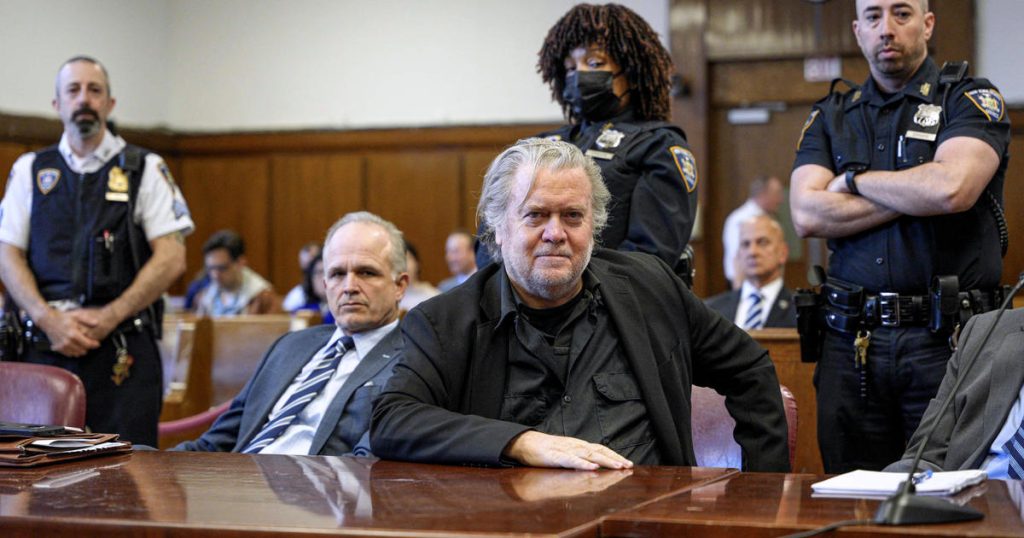Steve Bannon, a conservative commentator and former ally of Donald Trump, is appealing his conviction on two counts of contempt of Congress and has asked a federal appeals court to allow him to remain out of prison while he continues to challenge the conviction. Bannon’s conviction stemmed from his refusal to comply with a subpoena from the House select committee investigating the January 6, 2021, attack on the U.S. Capitol, including his communications with Trump about overturning the results of the 2020 election. Bannon argued that he couldn’t respond to the subpoena due to potential claims of executive privilege raised by Trump, but a jury found him guilty and sentenced him to four months in prison.
A three-judge panel of the U.S. Court of Appeals for the District of Columbia Circuit upheld Bannon’s conviction, rejecting his defense that he relied on advice of counsel and knew he intentionally refused to comply with the subpoena. The panel also found that the subpoena was valid, leading to the revocation of Bannon’s bail and an order to surrender by July 1 to begin serving his prison sentence. Bannon’s legal team plans to request a rehearing before the full panel of judges and may seek relief from the Supreme Court. They argue that the Supreme Court would be interested in reviewing his conviction and that denying his release would prevent the court from considering his appeal before the November election.
Bannon’s lawyers emphasized the political impact of his imprisonment, noting that he is a political commentator and campaign strategist, and argue that his incarceration would hinder his ability to serve as an advisor in the upcoming national campaign. This would also limit his influence on important campaign issues leading up to the election. Peter Navarro, another former Trump administration official, was also convicted of contempt of Congress and is serving a four-month prison sentence. Navarro, like Bannon, is appealing his conviction and seeking to remain free during the appeals process. The Supreme Court rejected Navarro’s request for release, raising questions about the potential outcome of Bannon’s appeal.
Bannon’s lawyers stress the need for urgent action from the appeals court to allow him to remain out of prison while he continues to challenge his conviction. They argue that releasing Bannon would enable him to pursue his appeal before the court’s term ends in June or early July, preventing him from serving his prison sentence before the Supreme Court has a chance to consider his case. The legal battle surrounding Bannon’s conviction highlights the broader implications of executive privilege, subpoena compliance, and the role of former Trump administration officials in ongoing political discourse. The outcome of Bannon’s appeal could have far-reaching consequences for future disputes over congressional subpoenas and the powers of oversight committees. As he continues to fight his conviction, Bannon’s case presents a complex legal and political challenge with significant implications for the current political landscape.


